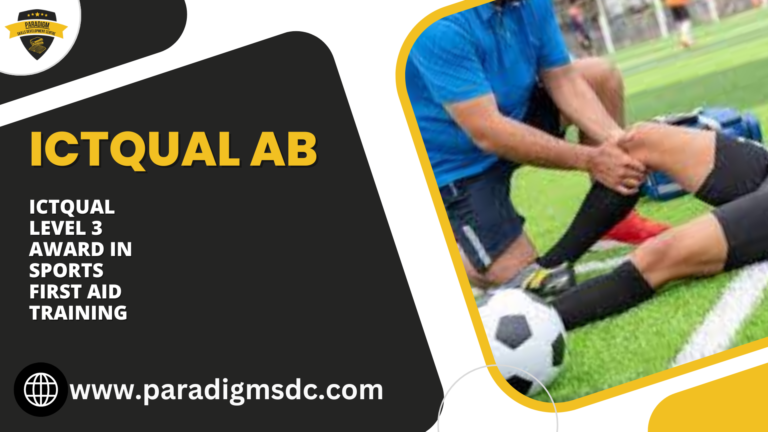Course Introduction
The ICTQual ISO 13485 Medical Devices Quality Management System Lead Implementer Course is designed to equip professionals with the knowledge and skills required to implement and manage a quality management system (QMS) for medical devices in compliance with the ISO 13485 standard. This course is essential for those seeking to enhance their career in the medical device industry by ensuring products meet regulatory requirements and maintain high standards of quality.
Course Overview
This comprehensive course covers the principles and practices of quality management specific to the medical devices industry. It provides an in-depth understanding of the ISO 13485 standard, including its requirements, implementation strategies, and best practices. The course combines theoretical knowledge with practical exercises to ensure participants can effectively apply what they learn in real-world scenarios.
Course Study Units
- Introduction to ISO 13485:
- Quality Management System Fundamentals:
- Risk Management in Medical Devices:
- Regulatory Framework for Medical Devices:
- Documenting the Quality Management System:
- Internal Auditing and Compliance Assessment:
- Implementing and Maintaining the QMS:
- Leadership and Communication Skills:
Learning Outcomes
By the end of this course, participants will be able to:
- Introduction to ISO 13485:
- Understand the purpose, scope, and structure of ISO 13485.
- Identify key requirements and principles of ISO 13485.
- Explain the importance of ISO 13485 compliance in the medical device industry.
- Recognize the benefits of implementing ISO 13485 for organizations and stakeholders.
- Quality Management System Fundamentals:
- Define the fundamental concepts of quality management systems.
- Describe the principles of quality management, including customer focus, process approach, and continual improvement.
- Apply the Plan-Do-Check-Act (PDCA) cycle to quality management processes.
- Explain how quality management principles apply to the design, development, production, and distribution of medical devices.
- Risk Management in Medical Devices:
- Identify the principles and objectives of risk management in the context of medical devices.
- Apply risk management methodologies, such as hazard analysis and risk assessment, to identify and evaluate risks associated with medical devices.
- Develop risk mitigation strategies and control measures to minimize or eliminate identified risks.
- Implement risk management processes in compliance with regulatory requirements and standards.
- Regulatory Framework for Medical Devices:
- Understand the regulatory landscape governing medical devices, including relevant laws, regulations, directives, and standards.
- Identify regulatory requirements and compliance obligations for medical device manufacturers in different jurisdictions.
- Interpret and apply regulatory requirements to ensure compliance throughout the product lifecycle.
- Navigate regulatory submissions, approvals, and audits effectively.
- Documenting the Quality Management System:
- Define the documentation requirements of ISO 13485 and other relevant standards.
- Establish document control processes to ensure the creation, approval, distribution, and maintenance of quality management system documents.
- Develop documentation, including quality manuals, procedures, work instructions, and records, in compliance with regulatory requirements.
- Implement document control measures to ensure the integrity, accessibility, and traceability of quality management system documentation.
- Internal Auditing and Compliance Assessment:
- Plan and prepare for internal audits of the quality management system.
- Conduct internal audits effectively, including audit scheduling, preparation, execution, and reporting.
- Identify non-conformities, discrepancies, and opportunities for improvement during internal audits.
- Implement corrective and preventive actions to address audit findings and improve the effectiveness of the quality management system.
- Implementing and Maintaining the QMS:
- Develop and execute implementation plans for ISO 13485 compliance within the organization.
- Allocate resources, define responsibilities, and establish processes to support the implementation of the quality management system.
- Monitor and measure the performance of the quality management system against defined objectives and targets.
- Continuously improve the quality management system through proactive measures, corrective actions, and process optimization.
- Leadership and Communication Skills:
- Demonstrate effective leadership qualities, including vision, integrity, and accountability.
- Communicate effectively with stakeholders at all levels of the organization, fostering collaboration and engagement.
- Lead teams through change initiatives, inspiring commitment and resilience.
- Apply interpersonal skills, emotional intelligence, and conflict resolution techniques to enhance teamwork and productivity.
Course Benefits
- Enhanced Career Prospects: Gain a valuable credential that can boost your career in the medical device industry.
- In-depth Knowledge: Acquire a deep understanding of ISO 13485 and its application in the medical devices sector.
- Practical Skills: Develop practical skills through hands-on exercises and real-world scenarios.
- Regulatory Compliance: Ensure your organization meets regulatory requirements and maintains high standards of quality.
- Competitive Advantage: Enhance your organization’s reputation and competitiveness by implementing a robust QMS.
Who is this Course For?
- Quality Assurance Professionals: Those responsible for ensuring product quality and regulatory compliance.
- Regulatory Affairs Specialists: Individuals involved in managing regulatory submissions and compliance.
- Medical Device Manufacturers: Companies looking to implement and maintain a QMS in accordance with ISO 13485.
- Consultants: Professionals providing consultancy services to the medical device industry.
- Auditors: Internal and external auditors seeking to understand and assess ISO 13485 compliance.
- Project Managers: Those overseeing the implementation of QMS projects in the medical device sector.
Future Progression
Upon completion of the IICTQual ISO 13485 Lead Implementer Course, participants can further enhance their expertise and career prospects by pursuing additional certifications and training, such as:
- ISO 13485 Lead Auditor: Specialize in auditing and assessing ISO 13485 compliance.
- ISO 14971 Risk Management for Medical Devices: Focus on the risk management aspects of medical devices.
- Six Sigma Certification: Improve process efficiency and quality within the medical device industry.
- Advanced Quality Management Courses: Expand your knowledge in quality management and related fields.
Embark on a journey to become a lead implementer of ISO 13485 and ensure the highest standards of quality for medical devices in your organization. Enroll in the IICTQual ISO 13485 Medical Devices Quality Management System Lead Implementer Course today!







